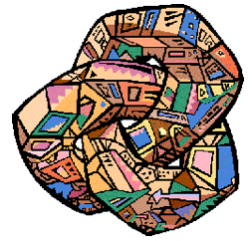Automatic Testing: Management’s Role
What you will learn:
Intended for an overview of automatic testing of electronics – including automatic test equipment (ATE), built-in self test (BIST) and other means – this course will teach you what options exist and how to make strategic decisions. You will learn the important considerations in test cost drivers and where opportunities exist for major savings, while maintaining and even improving test comprehensiveness.
Abstract:
The course takes you from philosophy to practical considerations. It defines the role and function of the test manager, provides tools for economic analysis and illustrates test strategy development. It looks at the resources available to modern test managers and examines how test management should be performed.

Who should attend:
Anyone who tests analog and mixed signal circuits. Basic understanding of electrical circuits is required to follow the material.
Course Content
Test Requirements
- Test Specifications
- Test Requirements Document (TRD)
- Test Requirements Analysis (TRA)
- Test Strategy Report (TSR)
- Test Program Set (TPS)
- Test Evaluation for Coverage and Diagnoses
Test Economics
- Cost of Testing vs. Costs of Not Testing
- Manual vs. Automatic Testing
- Military vs. Commercial ATE
- Effect of Fault Distribution
- Investment Appraisal Method
Building Blocks of an ATE – How ATEs are Similar
- Common ATE Building Blocks
- Instrumentation
- Instrument Buses
- Interfacing and Fixturing
- Integration of Unit Under Test (UUT) and ATE
How ATEs are Different
- IC Testers
- Assembly Fault Testers
- In-Circuit Testers
- Functional Testers
- Boundary-Scan Testers
- Systems Testers
- Environmental Test – Burn-In
- Field Service Testers
Alternatives to ATE
- Built-In Self Test
- Embedded Test
- Synthetic Instruments
- Built-in self repair
- Throw-away faulty UUTs
Test Strategy Development
- Analyzing the UUT
- Fault Distribution
- Test Stage Mixes
- Assessing ATE Requirements
- Test Cost Estimation Software
Managing Test Resources
- TPS Cost Estimation
- TPS Acquisition
- In-House TPS Development
- TPS Quality Assurance
- The Test Strategy Report
Managing Various Test Functions
- Design for Testability
- Production Testing
- Software Testing
- Maintenance Testing
- Field Return Testing
- Concurrent Engineering
The Test Manager’s Role
- Planning
- Organizing
- Controlling
- Leading
Summary and Conclusions
- Questions/Answers
Follow-On Course
The 2-day course, “Automatic Testing: The Test Engineers’ Role” gets into more technical details for the tech-savvy test engineers. This course acts as a good prerequisite.
Instructor:
Louis Y. Ungar
Louis Y. Ungar, President of Advanced Test Engineering (A.T.E.) Solutions, Inc. holds a B.S.E.E. and Computer Science degree from UCLA and has completed course work towards a M.A. in Management. As a test engineer, Mr. Ungar designed automatic test equipment (ATE), created hundreds of test programs for dozens of ATEs. As a design engineer he designed payload systems for the Space Shuttle, eventually leading a team of designers. With both engineering and management experience in test and design, Mr. Ungar founded A.T.E. Solutions, Inc. in 1984, a highly respected test and testability consulting and educational firm. Mr. Ungar serves as Testability Committee Chair for the Surface Mount Technology Association (SMTA), as Consultant to the American Society of Test Engineers (ASTE), the founding President of the Testability Management Action Group (TMAG) and various test and testability groups of the Institute of Electrical and Electronics Engineers (IEEE). He has recently balloted on the IEEE-1149.1-2013 and the IEEE-1687. He also developed the Testability section of a Design for Excellence (DFX) Guideline by the IPC to be published in 2018.
Other qualified A.T.E. Solutions, Inc. instructors may teach this course.
Availability:
Private Forum:
Date: Your choice
Length: 1-day
Location: Los Angeles
Price: Request a Quote
Onsite:
Date: Your choice
Length: 1-day
Location: Your choice
Price: Request a Quote
On-Site Webinar:
Date: Your choice
Length: 4 x 90 min modules
Location: Via Internet
Price: Request a Quote
CourseNotes:
Format: PDF file
Distribution: emailed
Price: $199.00
» Buy Now
